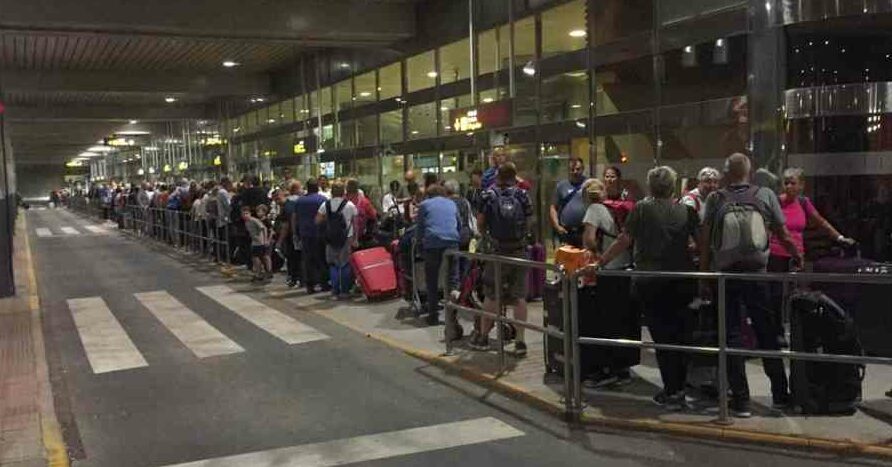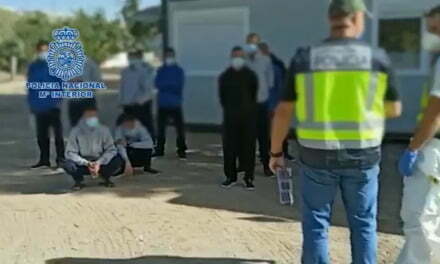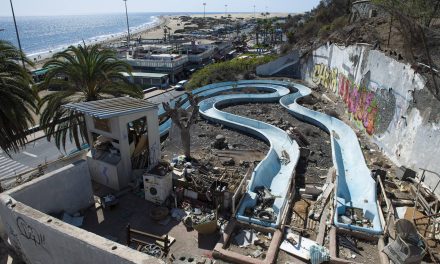Numerous flight cancellations and delays have disrupted travel plans at several airports in the Canary Islands, including Gran Canaria, Tenerife Sur, Lanzarote and Fuerteventura. The disruptions this Monday stemmed from technical issues with UK air traffic control system. Over 100 flights to and from various British cities have been affected due to a failure in the automatic flight processing system. This forced the need to manually input flight data, slowing down the overall process. The issue has caused chaotic scenes, during the peak summer travel season, with some passengers facing delays of over 10 hours, journeys and even entire holidays being cancelled.
 The UK’s air traffic control operator, NATS, explained that while the UK’s airspace remained open, traffic was being restricted to ensure safety. Airlines have advised affected passengers to contact them for information regarding flight changes. The problem was finally resolved after 3:00 PM, and efforts were made to alleviate the disruption in cooperation with airlines.
The UK’s air traffic control operator, NATS, explained that while the UK’s airspace remained open, traffic was being restricted to ensure safety. Airlines have advised affected passengers to contact them for information regarding flight changes. The problem was finally resolved after 3:00 PM, and efforts were made to alleviate the disruption in cooperation with airlines.The disruption coincides with the end of August bank holiday in the UK and a peak period for families looking to take advantage of the last of the summer holidays, with over 3,000 arrivals and departures scheduled at British airports, including more than 100 flights involving the Canary Islands’ airports. Among these, Tenerife Sur airport was the hardest hit, with around 50 flights canceled or delayed. Airlines like Jet2, TUI, EasyJet, and Ryanair, connecting various British cities, were all affected.
Although the problem was “identified and resolved” around 3:00 PM, as of the time of this report, numerous flights still faced hours of delays, and around 500 had been canceled.
The National Air Traffic Service (NATS) acknowledged on Monday that airports would take days to return to normalcy due to the sheer volume of flights affected by the glitch.
Secretary of Transport Mark Harper appealed for understanding and patience from passengers, recognizing the critical nature of the timing.
On Monday, NATS collaborated with various airlines to mitigate the collapse “as efficiently as possible.” However, some airlines, such as Ryanair and British Airways, informed their customers that it would take time to resume their usual operations.
Lanzarote experienced the second-highest impact, with 27 flights disrupted. Gran Canaria had 25 flights affected, split between departures and arrivals. Fuerteventura encountered difficulties with nine operations. Fortunately, only a few late-night flights experienced minimal alterations in their schedules. The technical glitch had a substantial impact on air travel during a crucial holiday period.
Members of a large social media group that assists visitors to Puerto Rico de Gran Canaria, including passengers affected by the flight disruptions, have expressed a mix of frustrations and concerns throughout the day. Some passengers highlighted that the issues extended beyond a single airline, while others called for media coverage at the airport. Many travellers sympathised with those caught in the chaos, especially during peak vacation season. Some said they had been informed they would now be stranded without options, facing delays until early September.
There were accounts of travellers being directed that they would have to to pay for their own accommodations with a possibility of reimbursement later. Others recalled similar incidents in the past, where travellers were left to cover costs and claim compensation later.
Many passengers were left grappling with flight cancellations and shared their reactions and concerns, questioning the unexpected and widespread cancellation of flights originating from the UK.
Eventually explanations emerged about UK air traffic control experiencing a significant outage, contributing to the chaos. The sudden disruption was attributed to a failure in the air traffic control system, resulting in confusion and distress. Individual members of the 100,000-strong social media group expressed empathy for fellow travellers, especially families with young children, whose vacation plans were shattered and some curiosity arose regarding whether or not entire vacations were being called off or merely delayed due to the flight cancellations.
Speculation emerged about the challenges involved in rescheduling flights during such a busy travel period, while travellers revealed their predicament of being stranded with no compensation due to the exceptional circumstances. The level of disruption was highlighted, with multiple flights grounded and significant inconvenience for passengers and concerns were voiced about the inability to contact airlines with much uncertainty about the next steps. Some members pointed out the potential for the situation to have an emotional impact on children and the disappointment of missed holidays, while others compared current events to past experiences, such as volcanic eruptions that have led to similar flight chaos.
At least one conspiratorial comment tried to link the flight cancellations to a potential new COVID-19 variant, eliciting mixed reactions to the theory ranging from skepticism to concern for the individual’s well-being.
Amid the uncertainty, individuals questioned the reason for canceling entire holidays due to a relatively short delay. Though the logistical challenge of accommodating and reorganizing thousands of stranded passengers was acknowledged passengers recounted stories of flight rescheduling, changes in departure airports, and the ensuing confusion.
One individual expressed disappointment and frustration at the chaotic situation caused by so many holiday cancellations. She said she had been waiting at the airport since 1 PM and was later moved to a bed and breakfast (B&B) to await further information. An email confirming the cancellation was anticipated at 9:30 PM but was received after midnight, leading to feelings of anger due to the vacation plans being cancelled.













